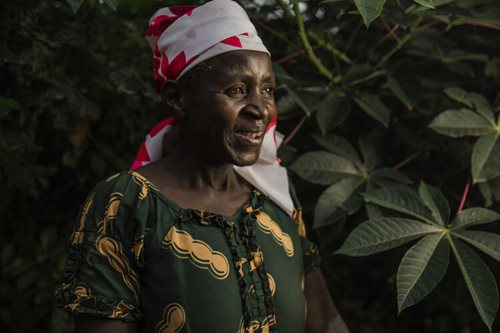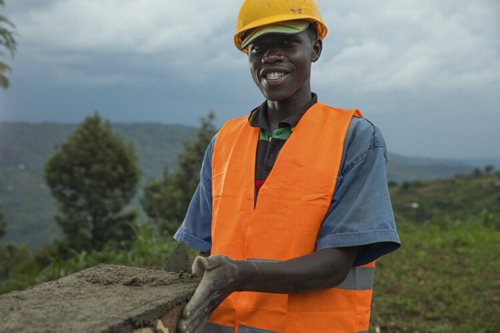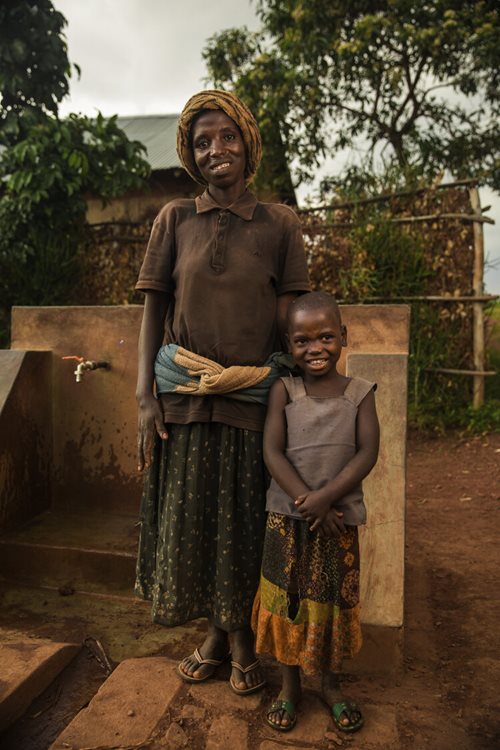In 2018, funds raised through The New York and Los Angeles Coffee Festivals funded three Piped System Tap Stands in Rwanda, through Project Waterfall's incredible partner charity: water. These tap stands form part of a wider project carried out by charity: water and Water for People which will bring clean water and sanitation to 81,164 people living in the Gicumbi District of Rwanda. Here’s an update on the progress so far.

(Photo: charity: water / Cubby Graham)
FIELD CONDITIONS
Rwanda is still recovering from the horrific 1994 genocide. Since then, a progressive government and growing economy have helped stabilize the country, but waterborne disease remains a leading cause of death. 43% of the country lacks access to basic water services and nearly 40% live without basic sanitation services. In the Gicumbi District of northern Rwanda, a place that more than 417,000 people call home, only 33% of households have access to adequate sanitation and a mere 13% have access to handwashing facilities. charity: water are working with their implementing partner, Water For People, to change this.
PROGRESS TO DATE
So far, 38 tap stands have been completed and are bringing clean and safe water to community members in Gicumbi. Four water point and sanitation packages have been completed in schools, including 36 new toilet cabins! A total of 124 Community Health Clubs have been established and 90 previously-established clubs have been given extra support. An additional twelve groups have also been formed to provide voluntary assistance in promoting hygiene education!

(Photo: charity: water / Cubby Graham)
Piped System Tap Stand
The hilly, mountainous terrain of Gicumbi is a perfect fit for piped systems, which depend on energy to distribute water to communities, schools, clinics, or households. In order to move water from one point to another, energy is required— and in a piped water system, gravity often acts as that source of energy. Water is piped through a supply line to a storage tank either by gravity or a mechanized pump. From the storage tank, the water flows into a network of pipes to tap stands. The various elevations of piped system components are key to ensuring that the water will flow successfully. These systems can significantly reduce the amount of time spent collecting water, as water is piped directly into communities.

(Photo: charity: water / Cubby Graham)
COMMUNITY ENGAGEMENT
Before a water point is implemented, Water For People’s local partner ORSD organizes community mobilization meetings in collaboration with local leaders. These meetings promote shared ownership and responsibility for the water point. Community participation is especially important in Gicumbi, as community members often donate their own land toward building water infrastructure. Water For People and ORSD train community Water User Committees (WUCs) on water management and payment for water service delivery at their water points, including obtaining small payments (about 0.03 USD per 20 liters of water) to provide for the long-term sustainability and maintenance of the water system. Each piped system is operated by a private operator, and has an overarching system committee, as well as individual water committees for each tap stand, both made up of community members who report any issues in water service to the District Water Board. Collectively, these measures support the overall health of the community and keep clean water flowing for years to come!
Want to learn more about project waterfall and the difference they are making in coffee-growing communities? click here.
Header image: charity: water / Cubby Graham
This article originally appeared on projectwaterfall.org